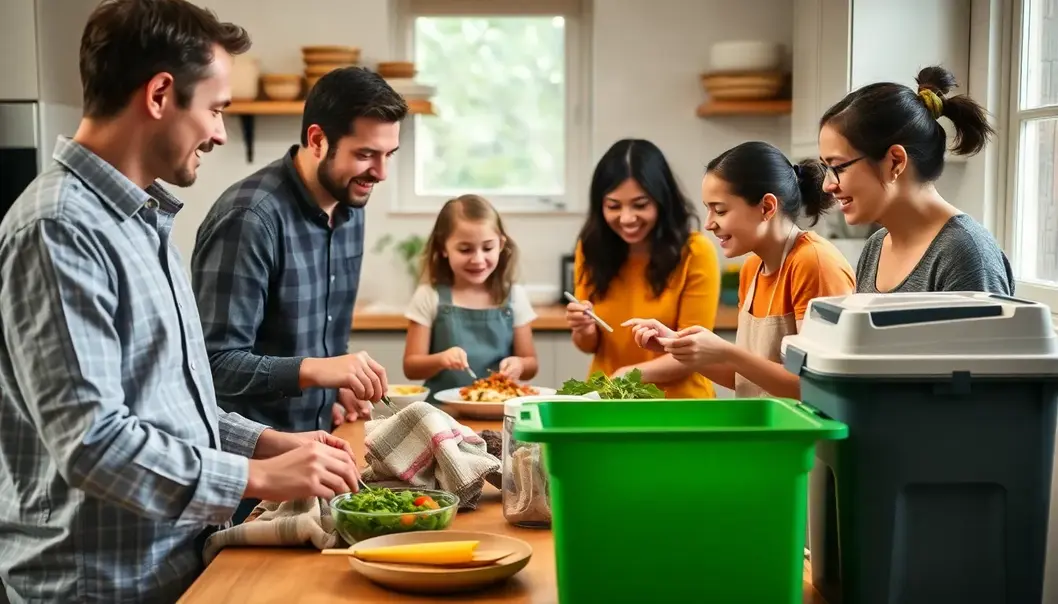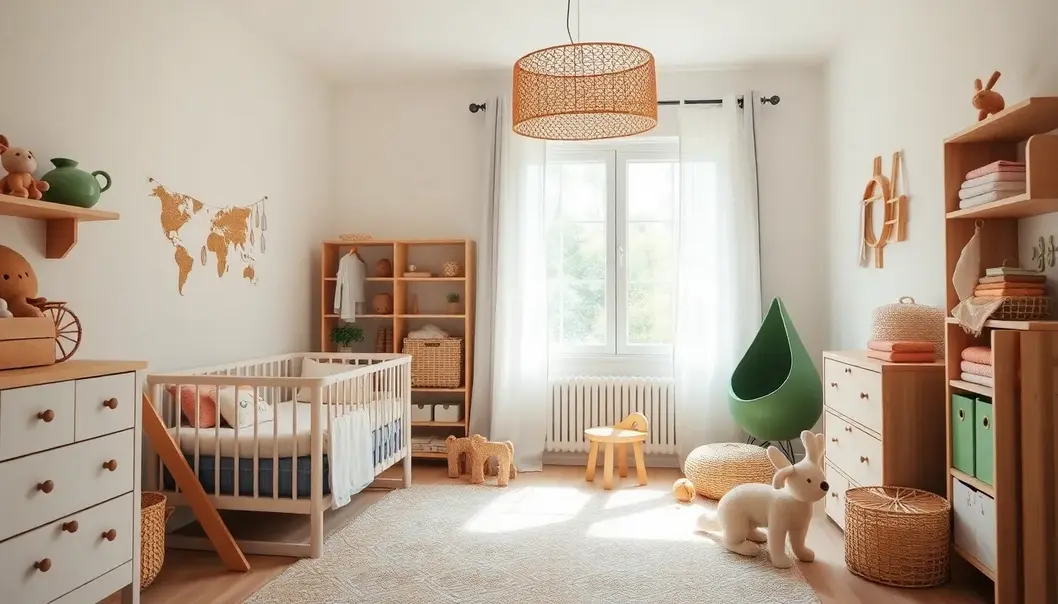Embracing a zero-waste lifestyle as a busy parent may seem daunting, but with the right approach, it can be both attainable and rewarding. By making simple swaps in daily routines, parents can significantly reduce their family’s environmental impact without adding stress to their already hectic schedules. Focusing on sustainability not only contributes to a healthier planet but also sets a positive example for children about the importance of caring for our world. This guide provides practical and reassuring tips for parents seeking easy ways to transition to a zero-waste lifestyle, ensuring that eco-friendly practices become an effortless part of their family life.
Sustainable Kitchen Practices

Opting for sustainable kitchen practices can significantly contribute to a zero-waste lifestyle, which can be particularly rewarding for families. By introducing small changes and embracing a handful of mindful swaps, parents can create a more eco-friendly kitchen that not only reduces waste but also offers educational and bonding opportunities for the whole family.
One of the most effective ways to start is by incorporating reusable products into everyday routines. Consider replacing single-use plastics like sandwich bags and plastic wrap with reusable containers and food wraps made from sustainable materials. These alternatives not only cut down on waste but are also durable and can be used repeatedly. Involving children in these changes can teach them about sustainability from a young age and instill the value of taking care of our planet.
Meal planning plays a crucial role in minimizing kitchen waste. By planning meals in advance, families can significantly reduce the amount of food that goes uneaten and, consequently, ends up in the trash. A weekly meal planner can help parents efficiently utilize groceries and avoid impulse purchases that lead to unnecessary waste. Moreover, involving children in meal planning can be a fun activity that also helps them understand the importance of balanced nutrition and waste reduction.
Implementing a composting system can further elevate your kitchen’s sustainability. Organic waste, which includes fruit and vegetable scraps, can be composted to create nutrient-rich soil for home gardens. Setting up a small compost bin can turn what might otherwise be considered garbage into valuable resources for growing herbs or small plants. This can be a great project to involve children in and witness firsthand the natural recycling process.
Additionally, using eco-friendly cleaning products is another step towards a sustainable kitchen. Many conventional cleaning supplies are housed in plastic bottles and contain harsh chemicals. Opting for sustainable alternatives, such as soap made from natural ingredients and reusable cleaning cloths, can help reduce plastic waste and protect both human health and the environment.
Moreover, integrating sustainable practices into the kitchen can enhance family life by fostering a greater connection to food sources and teaching children about responsible living. This idea resonates with broader environmental benefits, echoing concepts like those discussed in a related blog.
By adopting these simple yet impactful kitchen practices, parents not only contribute to a healthier planet but also pave the way for future generations to value and protect the environment. The transformation to a zero-waste lifestyle starts with small, manageable changes that yield long-lasting benefits for both the family and the planet.
Eco-Friendly Childcare Essentials

Raising a family while embracing a zero-waste lifestyle can seem daunting, but integrating eco-friendly practices into childcare is both feasible and rewarding. Starting with the basics, reusable diapers present an effective alternative to disposable ones. Unlike their single-use counterparts, cloth diapers can be washed and reused multiple times, significantly reducing landfill waste. They are available in various materials, such as cotton and bamboo, which are gentle on baby’s skin. While the initial investment may be higher, the long-term savings and reduced environmental impact are substantial.
Beyond diapers, consider eco-friendly toys to minimize waste and promote sustainability from a young age. Opt for wooden toys crafted from sustainably sourced wood instead of plastic, which often ends up in oceans and landfills. These toys are not only durable but also free from harmful chemicals often found in plastics. Additionally, incorporating toys made from recycled materials can teach children the value of reusing resources. Swap out brightly colored plastic for toys that engage children’s creativity and imagination in a more sustainable way.
Clothing is another significant area where parents can make conscious choices. Choosing sustainably made garments involves seeking out clothes produced using organic materials and ethical labor practices. Look for certifications that verify sustainable sourcing, and consider shopping from local brands to reduce the carbon footprint associated with transporting goods long distances. Embracing second-hand options is another excellent way to extend the life cycle of children’s clothing, saving money while reducing demand for new resources.
Moreover, embrace the concept of hand-me-downs within your community or family circles. Organizing clothing swaps with neighbors or friends allows you to refresh your child’s wardrobe without contributing to waste, fostering a sense of community and sharing. These practices not only reduce waste but also instill a mindset of sustainability in children, preparing them to be mindful consumers as they grow.
For parents interested in learning more about sustainable living and community initiatives, exploring vital health benefits of trees for communities is a great resource. Integrating lessons about environmental stewardship in daily routines will have lasting impacts, not only reducing waste today but building a healthier environment for future generations.
Final words
Adopting easy, zero-waste swaps in everyday family routines can make a substantial difference in environmental impact. Parents can lead by example, teaching their children sustainable habits that promote a healthier planet. These small yet significant changes can enhance family life, demonstrating that sustainable living is not just a trend but a rewarding lifestyle choice. By incorporating these practices, families can enjoy the peace of mind that comes with contributing positively to the Earth.
Embrace a zero-waste lifestyle today and inspire your family to make a lasting impact. Discover more tips and products.
Learn more: https://sustainablefamilies.com/start-zero-waste
About us
We provide families with eco-friendly products and practical resources to support a zero-waste lifestyle, from reusable kitchen essentials to sustainable childcare items.

